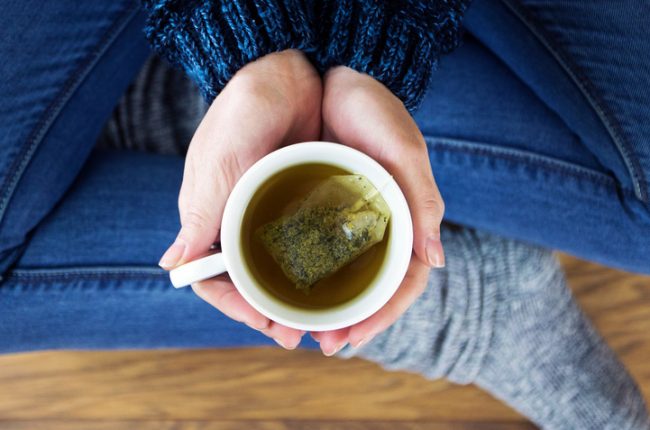Millions of Americans cannot imagine life without tea. Not only does it soothe and warm us on a cold winter day, but tea also can protect our health.
“Tea does have the potential to enhance health and prevent disease,” says Neva Cochran, a Dallas-based registered dietitian nutritionist and nutrition communications consultant.
Researchers studying tea’s possible health benefits have focused mostly on green tea and black tea. But whichever type you prefer, know that “all have benefits,” Cochran says.
Drinking tea is healthful because it:
Helps your heart
Tea is particularly rich in two types of flavonoids: catechin and epicatechin.
Studies suggest that flavonoids — which are antioxidants — reduce inflammation. In doing so, flavonoids might help prevent the buildup of plaque inside the arteries that can lead to coronary artery disease.
“The strongest evidence for tea’s health benefits is for heart health,” Cochran says.
Flavonoids also can significantly decrease both total cholesterol and LDL — or so-called “bad” — cholesterol in the blood.
In addition, some studies have linked flavonoids to reduced blood clotting and lower blood pressure, Cochran says.
Protects you against strokes
Drinking three cups of black or green tea every day can reduce your risk of stroke by up to 21 percent, according to a 2009 UCLA study.
In fact, researchers found that the more tea you drink, the better. Sipping six cups of tea drops your stroke risk by 42 percent, according to the study findings.
Researchers have not discovered the source of this protective effect, but believe it might be traced to the antioxidant epigallocatechin gallate (EGCG) or the amino acid theanine.
Might lower your risk of cancer
To date, the National Cancer Institute does not recommend tea consumption as a way to reduce your risk of cancer.
“There are mixed results for tea’s influence on cancer risk,” Cochran says. “Some studies show lower risk while others show no influence.”
However, given tea’s numerous benefits — which may also include better bone and dental health, improved blood sugar control, and mood regulation — it can’t hurt to drink a little more in hopes it will protect you from cancer.
Getting the biggest health benefits from tea
Not every cup of tea is created equal. The type of tea you choose — loose versus bagged — impacts the amount of beneficial compounds in your cup.
“Loose tea leaves expose the water to more surface area than tea bags, so more antioxidants are extracted,” Cochran says.
For example, one study showed that at a four-minute brewing time, tea made from tea bags had 10 percent to 29 percent fewer antioxidants than tea made from loose tea leaves, Cochran says.
That doesn’t mean you should skip brewing with tea bags, as you will still get plenty of antioxidants. “So, it should be a matter of personal preference, time and cost,” Cochran says.
The length of time you brew tea also has a big impact on its antioxidant content.
“The ideal brewing time for tea is about four minutes for white and black, and three minutes for green and oolong,” Cochran says.
Caveats about the health benefits of tea
Some drinks commonly considered to be “tea” are less likely to have benefits. This includes herbal teas.
“Tea is not made from chamomile, peppermint, jasmine, hibiscus, ginger, lavender and licorice,” Cochran says. “These are herbal infusions that have been mistakenly called ‘tea’ because they are prepared in the same way.”
Real tea — green, black, white and oolong — comes from the leaves of the tea bush (Camellia sinensis). The differences among these four types of tea boils down to how they are processed.
In addition, note that instant tea and bottled tea beverages don’t have nearly the level of antioxidants as brewed tea, Cochran says.
“Of course, iced tea made from brewed tea would be a good option to get these beneficial compounds,” she says.
Finally, Cochran cautions against seeing tea as a “magic bullet” that will solve all your health issues.
“A bad diet with tea is still a bad diet,” she says. Each of the food groups is unique in the nutrients it provides, Cochran says
“A balanced intake from all food groups is one that will be the best in promoting overall good health,” she says. “Drinking tea can certainly be an added benefit.”

